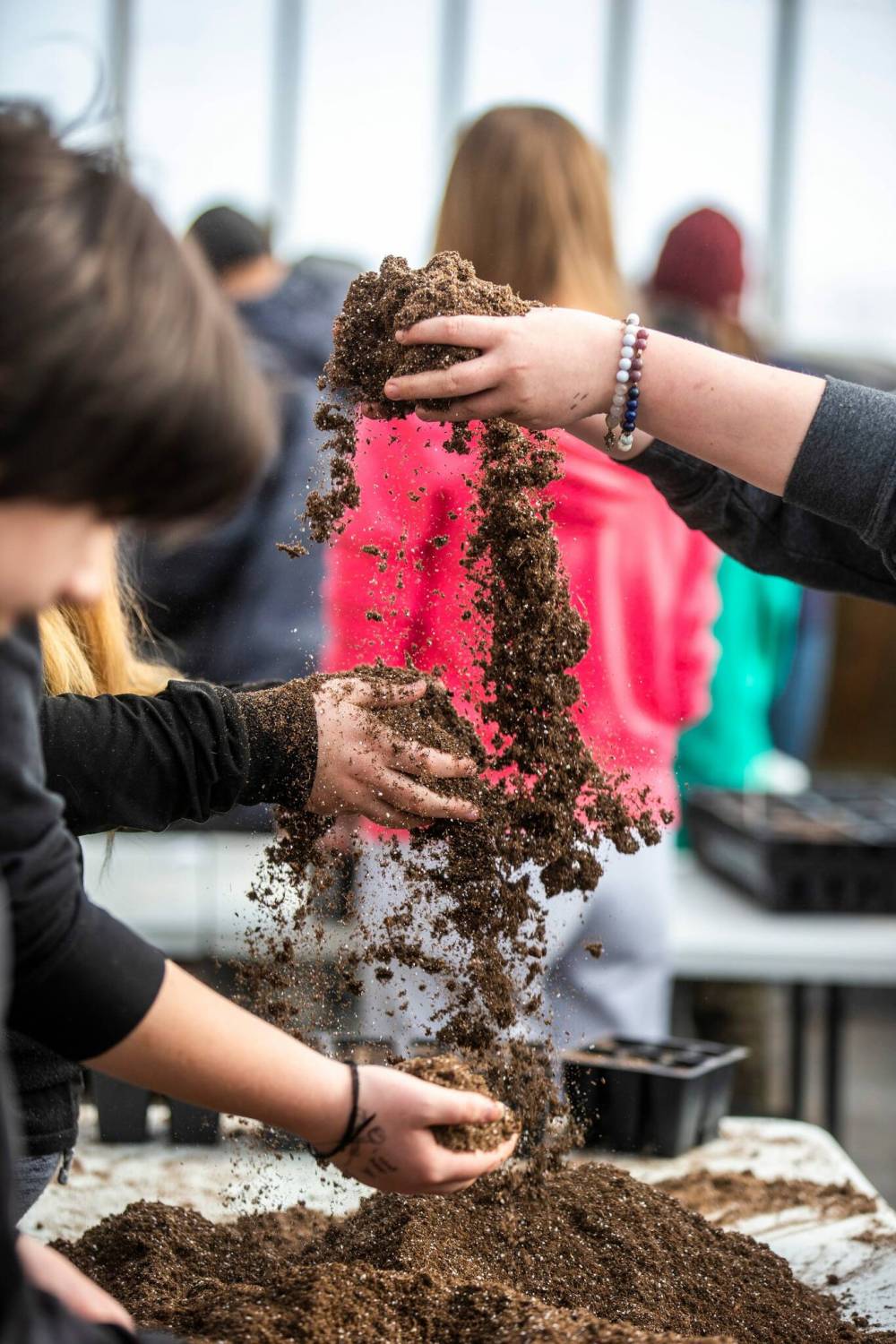‘Conversation is climate action’: guide to assist educators in age of eco-anxiety
Advertisement
Read this article for free:
or
Already have an account? Log in here »
To continue reading, please subscribe:
Monthly Digital Subscription
$0 for the first 4 weeks*
- Enjoy unlimited reading on winnipegfreepress.com
- Read the E-Edition, our digital replica newspaper
- Access News Break, our award-winning app
- Play interactive puzzles
*No charge for 4 weeks then price increases to the regular rate of $19.00 plus GST every four weeks. Offer available to new and qualified returning subscribers only. Cancel any time.
Monthly Digital Subscription
$4.75/week*
- Enjoy unlimited reading on winnipegfreepress.com
- Read the E-Edition, our digital replica newspaper
- Access News Break, our award-winning app
- Play interactive puzzles
*Billed as $19 plus GST every four weeks. Cancel any time.
To continue reading, please subscribe:
Add Free Press access to your Brandon Sun subscription for only an additional
$1 for the first 4 weeks*
*Your next subscription payment will increase by $1.00 and you will be charged $16.99 plus GST for four weeks. After four weeks, your payment will increase to $23.99 plus GST every four weeks.
Read unlimited articles for free today:
or
Already have an account? Log in here »
Hey there, time traveller!
This article was published 03/07/2023 (882 days ago), so information in it may no longer be current.
Amid a season of heat waves and wildfire smoke, a new curriculum is urging Manitoba teachers to normalize climate change conversations in classrooms and it provides tips on how to do just that in 2023-24.
Green Minds has released Climate Hope, a free e-book that aims to help educators overcome fears about the planet’s future and build confidence to introduce the anxiety-inducing topic in a way that empowers students to take action.
“If we don’t have experiences out in our community or outside, it’s going to be really challenging — and I would say, impossible — for kids to care for it,” said Scott Durling, a teacher who edited the eco-anxiety guide published last week.

MIKAELA MACKENZIE / WINNIPEG FREE PRESS FILES
“What we really wanted to do was broaden what we believe climate action to be,” said Scott Durling, a teacher who edited the eco-anxiety guide published last week.
Given teachers often do not know where to start when it comes to acknowledging the environment has changed, and continues to change, his advice is to start by simply spending more time outside with students throughout the year.
Winnipeg’s H.C. Avery Middle School and Green Minds, a group of researchers, educators and mental health professionals in the city, partnered last year to study how human consumption and growing carbon emissions are not only taking a toll on Earth, but students’ well-being.
The duo received a $70,000 grant via the Manitoba Teachers’ Idea Fund to pilot various climate change education initiatives and create a related curriculum.
The 79-page guide, a living document, notes the complex and, at times, distressing feelings that come along with climate change discussions. It includes coping mechanisms, introductory activities, holistic lesson plans and multimedia resources to explore the subject and all the emotions that come with it.
In early-years grades, teachers are encouraged to expose students to the natural world, teach them about the Indigenous lands they live on, undertake small-scale action items, and actively listen to questions and concerns.
Harold the Iceberg Melts Down, a picture book about eco-anxiety, and All the Feelings Under the Sun: How to Deal With Climate Change are among the age-appropriate resources highlighted in the guide.
The living document calls on middle and high school teachers to build on elementary practices and teach the politics of climate change, participate in ecological acts of community service, and normalize conversations about the topic.
“Conversation is climate action. Don’t underestimate the power of conversation,” states an excerpt from the newly-released curriculum.
Durling said it is only when people talk about the issue that they can begin to question the norms — related to everything from travel to water depletion — that led to it, and start challenging those norms.
“What we really wanted to do was broaden what we believe climate action to be,” he said, noting it does not only come in the form of protests or “going garbageless.”
“I think it begins with conversation and it begins with some of this internal activism, which is really starting to think about your own identity and your own abilities and how you can plug that into physical (action).”

MIKAELA MACKENZIE / WINNIPEG FREE PRESS FILES
Undertaking a school waste audit, harvesting rainwater, and organizing a community clean-up are all listed as “take-action” projects in the guide.
Undertaking a school waste audit, harvesting rainwater, and organizing a community clean-up are all listed as “take-action” projects in the guide.
While noting corporations and governments are responsible for many unsustainable practices and supporting them today, Durling said citizens need the tools, skills and self-efficacy in order to mobilize to hold them accountable and demand change.
Manitoba Education has significantly pared down its website on education for sustainable development in recent months.
Until mid-way through the school year, the page listed grant opportunities, recognized “eco-globe schools” — buildings it recognized for exceptional commitment to environmentalism — and promoted the Green Action Centre and Prairie Climate Atlas, among other ecological advocacy groups and projects.
A government spokesperson said the province continues to value and incorporate outcome and learning experiences related to sustainable development, many of which are in science and social studies curricula.
The department is currently “renewing (online) resources to ensure they are up to date and accurate,” the spokesperson said in an email.
maggie.macintosh@freepress.mb.ca
Twitter: @macintoshmaggie

Maggie Macintosh
Education reporter
Maggie Macintosh reports on education for the Free Press. Originally from Hamilton, Ont., she first reported for the Free Press in 2017. Read more about Maggie.
Funding for the Free Press education reporter comes from the Government of Canada through the Local Journalism Initiative.
Every piece of reporting Maggie produces is reviewed by an editing team before it is posted online or published in print — part of the Free Press‘s tradition, since 1872, of producing reliable independent journalism. Read more about Free Press’s history and mandate, and learn how our newsroom operates.
Our newsroom depends on a growing audience of readers to power our journalism. If you are not a paid reader, please consider becoming a subscriber.
Our newsroom depends on its audience of readers to power our journalism. Thank you for your support.



